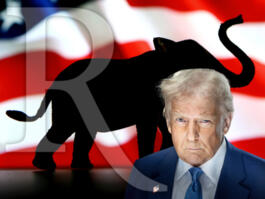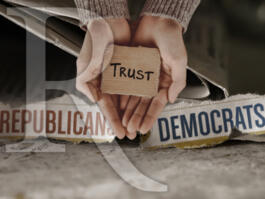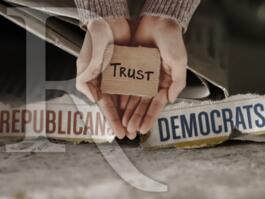The Known -- and Unknown -- Unknowns in the Republican Race Ahead
A Commentary By Michael Barone
Some observations on the 2016 presidential race as we head into the dark period, i.e., the two weeks of Christmas and New Year's holidays in which no one has ever dared, at least in the past, to conduct any polls. Those of us who pick over poll results will have to fly blind until the week starting Jan. 4.
Which leaves us with two weeks to ponder, without much in the way of further evidence, the known unknowns of the 2016 Republican campaign cycle. They include:
1) How many of Donald Trump's supporters will actually vote in caucuses and primaries? Poll analysts have noted that Trump is much stronger among non-college-educated than college-educated voters, that he tends to be stronger among those who haven't voted in caucuses and primaries in the past than among those who have, and that he runs consistently better in robo-call and Internet polls than he does in live-interview polls.
Under traditional rules of thumb, one would expect that many Trump fans won't actually vote, and that his percentages will be well under the 33 percent he's getting in national polls and the 25 percent and 29 percent he's polling in Iowa and New Hampshire.
That in turn suggests he'll have a low ceiling of support in later contests, since many, perhaps most, of non-Trump respondents have unfavorable feelings about him. In which case a candidate who emerges as Trump's chief rival, or one of two candidates who rise to the top, will be nominated, much as candidates have been in the past.
But maybe Trump supporters will actually turn out in large numbers, even those who haven't been engaged in the past. Evidence for that includes the large crowds he's been attracting and the huge viewership numbers for the Republican debates: 13 million to 24 million, far above the previous record of 8 million.
2) Will the Republican race boil down to a contest between Ted Cruz and Marco Rubio? If Trump's numbers fall or collapse, the focus will be on these two candidates, whose poll numbers have risen to double digits nationally and in the two leadoff states.
Cruz seems to have benefited in Iowa from the collapse in support for Ben Carson among religious conservatives. They have been a majority of past caucus-goers -- a larger Republican constituency than in any other non-Southern state. But that won't help him much in New Hampshire, where religious conservatives are scarce on the ground.
Rubio is threatened there by the rising support for Chris Christie, who has been conducting dozens of town hall meetings and who had a strong debate performance last week. That's in contrast to Jeb Bush, who has made no headway despite his super PAC's $17 million in TV ads there. It looks like either Rubio or Christie will emerge as a strong contender from New Hampshire -- but probably not both.
3) How will Rubio withstand the attacks coming his way? Though he isn't leading the polls in any state, Rubio is the odds-makers' favorite to win the Republican nomination. He's widely acceptable to Republican primary voters and is a smooth and articulate debate performer. His opponents evidently share the odds-makers' view: He was the target of more attacks in the Las Vegas debate than any other candidate, even Trump.
There Rubio and Cruz engaged in furious argument over foreign policy and immigration, both making intellectually serious points but both also taking tacks that, as my Washington Examiner colleague Byron York has documented, can't really be sustained. So far Rubio has been impressively unflappable and even in the heat of argument has maintained a likeability edge over Cruz. But it's not clear who will come out ahead.
4) Besides the known unknowns, what unknown unknowns lie ahead? The Las Vegas debate centered on terrorism, which probably would not have been the case but for the San Bernardino attack 13 days earlier. That probably helped some candidates, notably Christie, more than others.
That was not the first time that this contest was affected by what the British Prime Minister Harold Macmillan told a junior colleague determines history: "Events, dear boy, events." And it probably won't be the last.
None of the Republican or Democratic candidates in 2008 expected that financial markets would collapse that fall, and they might have campaigned differently had they known. We can see the calendar ahead, but not everything that will appear on the pages.
Michael Barone, senior political analyst at the Washington Examiner (www.washingtonexaminer.com), where this article first appeared, is a resident fellow at the American Enterprise Institute, a Fox News Channel contributor and a co-author of The Almanac of American Politics. To find out more about Michael Barone, and read features by other Creators writers and cartoonists, visit the Creators Syndicate Web page at www.creators.com.
COPYRIGHT 2015 CREATORS.COM
See Other Political Commentary.
See Other Commentaries by Michael Barone.
Views expressed in this column are those of the author, not those of Rasmussen Reports.
Rasmussen Reports is a media company specializing in the collection, publication and distribution of public opinion information.
We conduct public opinion polls on a variety of topics to inform our audience on events in the news and other topics of interest. To ensure editorial control and independence, we pay for the polls ourselves and generate revenue through the sale of subscriptions, sponsorships, and advertising. Nightly polling on politics, business and lifestyle topics provides the content to update the Rasmussen Reports web site many times each day. If it's in the news, it's in our polls. Additionally, the data drives a daily update newsletter and various media outlets across the country.
Some information, including the Rasmussen Reports daily Presidential Tracking Poll and commentaries are available for free to the general public. Subscriptions are available for $4.95 a month or 34.95 a year that provide subscribers with exclusive access to more than 20 stories per week on upcoming elections, consumer confidence, and issues that affect us all. For those who are really into the numbers, Platinum Members can review demographic crosstabs and a full history of our data.
To learn more about our methodology, click here.



